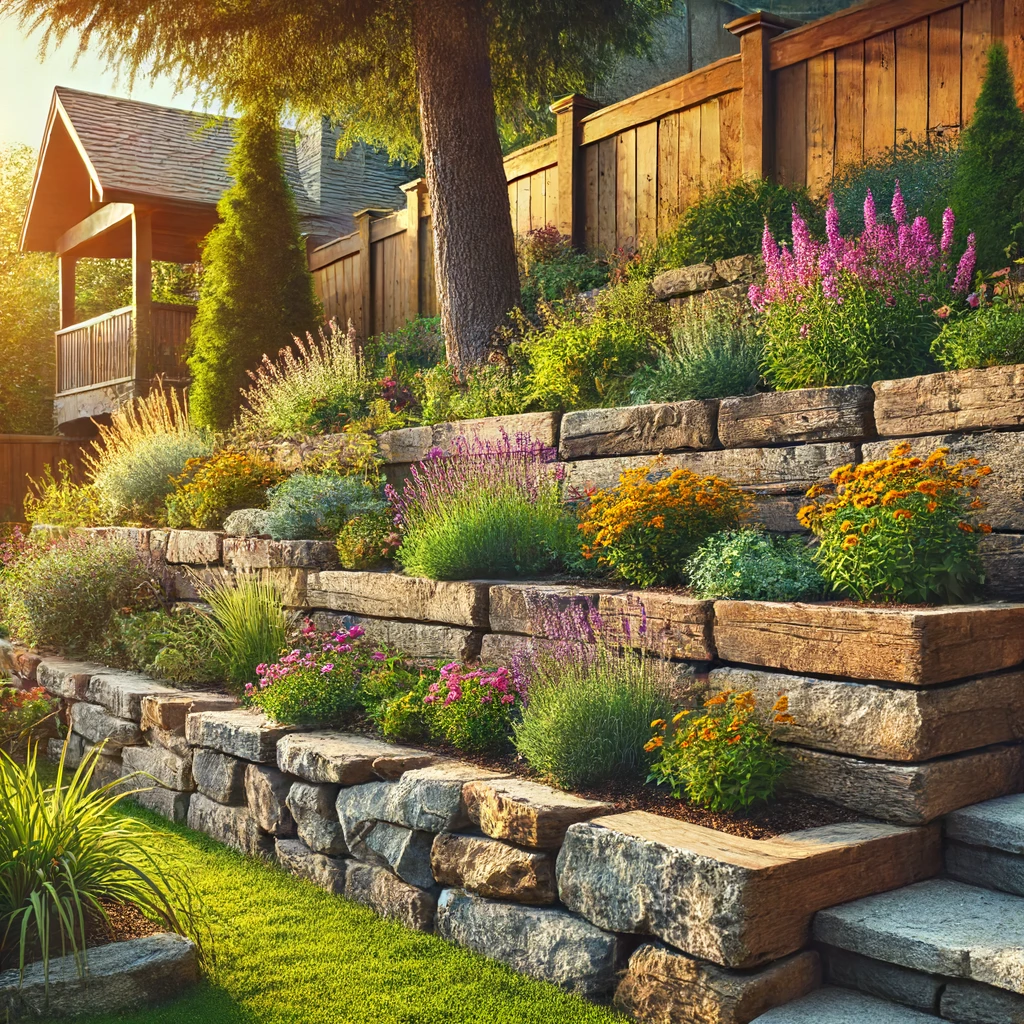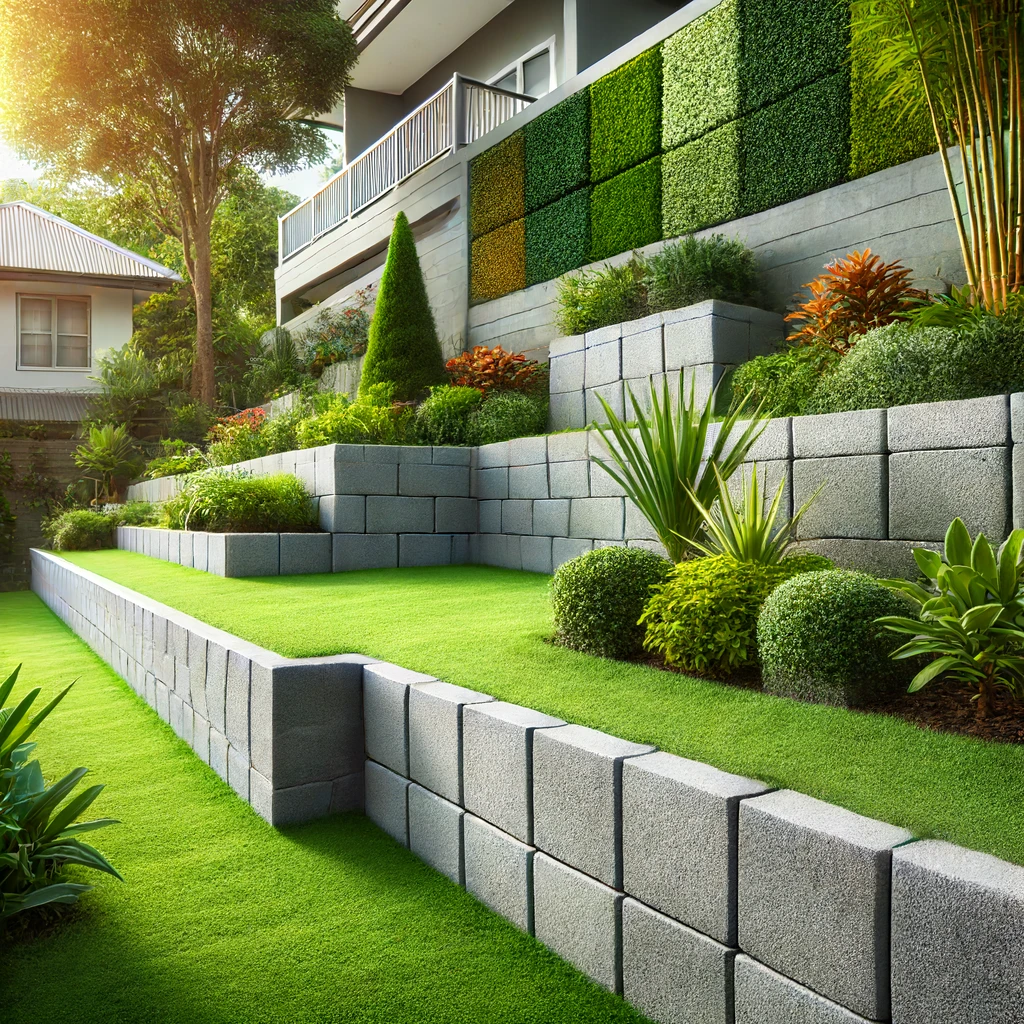When planning a landscaping project, one of the essential structures to consider is a retaining wall. These walls serve multiple purposes, from preventing soil erosion to creating usable flat spaces on uneven terrain. But before diving into construction, it’s crucial to understand the cost of a retaining wall per square foot. This knowledge will help you budget effectively and make informed decisions about the materials and design best suited for your project.
Factors Influencing the Cost of a Retaining Wall per Square Foot
Several factors impact the cost of a retaining wall per square foot. These include the materials used, the height and length of the wall, the site conditions, and the labor costs involved. Let’s break these down to give you a clearer picture.
1. Materials
The choice of material significantly affects the overall cost. Here’s a breakdown of common materials and their average costs per square foot:
- Concrete Blocks: Typically range from $15 to $30 per square foot. They are durable, easy to install, and provide a clean, modern look.
- Natural Stone: Can vary widely but generally falls between $25 and $75 per square foot. Natural stone is highly aesthetic and blends well with most landscapes, but the cost can be high due to the material itself and the labor required to install it.
- Timber: Costs around $20 to $40 per square foot. Timber retaining walls give a rustic look and are relatively easy to install, but they may require more maintenance over time.
- Poured Concrete: Priced between $30 and $50 per square foot. Poured concrete offers a sleek, contemporary appearance and can be molded into various shapes, but it requires skilled labor for proper installation.
- Gabion: These are wire cages filled with rocks and typically cost between $15 and $60 per square foot. They are robust and allow for excellent drainage, making them suitable for various landscapes.
2. Height and Length of the Wall
The dimensions of the wall are crucial in determining the total cost. Taller walls require more materials and additional reinforcement, which increases the price per square foot. Similarly, longer walls need more labor and materials, adding to the cost. As a rule of thumb, the cost tends to increase exponentially with the height due to the additional engineering and safety considerations.
3. Site Conditions
Site conditions can significantly affect the cost. For instance:
- Sloped or uneven terrain may require more excavation and grading, increasing labor costs.
- Accessibility issues, such as tight spaces or difficult-to-reach locations, can complicate delivery and installation, adding to the expense.
- Soil type can also play a role. For example, sandy or loose soils might need additional reinforcement or foundation work to ensure the wall’s stability.
4. Labor Costs
Labor is another substantial component of the cost of a retaining wall per square foot. The complexity of the design, the type of material, and the local labor rates all influence the final price. Skilled labor for materials like natural stone or poured concrete can be particularly costly due to the precision required for installation.
5. Additional Features
Adding features such as drainage systems, lighting, or decorative finishes can also increase the cost. These elements enhance the functionality and appearance of the retaining wall but come at an additional price.

Estimating the Cost of a Retaining Wall per Square Foot
To give you a practical sense of what to expect, let’s consider a few examples:
Concrete Block Retaining Wall
For a standard concrete block retaining wall:
- Material Cost: $20 per square foot.
- Labor Cost: $10 per square foot.
- Total Estimated Cost: $30 per square foot.
Natural Stone Retaining Wall
For a natural stone wall:
- Material Cost: $50 per square foot.
- Labor Cost: $20 per square foot.
- Total Estimated Cost: $70 per square foot.
Timber Retaining Wall
For a timber retaining wall:
- Material Cost: $30 per square foot.
- Labor Cost: $15 per square foot.
- Total Estimated Cost: $45 per square foot.
Poured Concrete Retaining Wall
For a poured concrete wall:
- Material Cost: $40 per square foot.
- Labor Cost: $20 per square foot.
- Total Estimated Cost: $60 per square foot.
Gabion Retaining Wall
For a gabion wall:
- Material Cost: $40 per square foot.
- Labor Cost: $20 per square foot.
- Total Estimated Cost: $60 per square foot.
Maximizing Value and Reducing Costs
While retaining walls are a significant investment, there are ways to manage and reduce costs without compromising quality:
1. Simplify the Design
A simpler design can cut down on material and labor costs. Opting for a straight wall rather than a curved one, or using readily available materials, can save you money.
2. DIY vs. Professional Installation
If you have the skills and time, a DIY project can save on labor costs. However, for more complex designs or materials that require expert handling, professional installation is recommended.
3. Plan for Proper Drainage
Proper drainage is essential for the longevity of your retaining wall. Investing in a good drainage system upfront can prevent costly repairs down the line.
4. Choose Materials Wisely
Select materials that fit your budget but also consider their long-term maintenance costs. Sometimes spending a bit more initially can save money over the lifetime of the wall.
5. Get Multiple Quotes
Always get multiple quotes from contractors. This not only gives you a sense of the fair market price but also allows you to compare services and find the best deal.
Conclusion
Understanding the cost of a retaining wall per square foot is crucial for any landscaping project. By considering factors like material, wall dimensions, site conditions, and labor, you can better estimate the total cost and budget accordingly. Whether you choose concrete blocks, natural stone, timber, poured concrete, or gabions, each option has its unique advantages and price points.
Remember, while it’s important to keep costs manageable, ensuring the quality and durability of your retaining wall is equally vital. After all, a well-constructed retaining wall not only enhances the beauty of your landscape but also adds long-term value to your property.
If you have any questions or need a detailed quote for your retaining wall project, feel free to contact Unlimited Drilling. Our team of experts is here to help you every step of the way.
